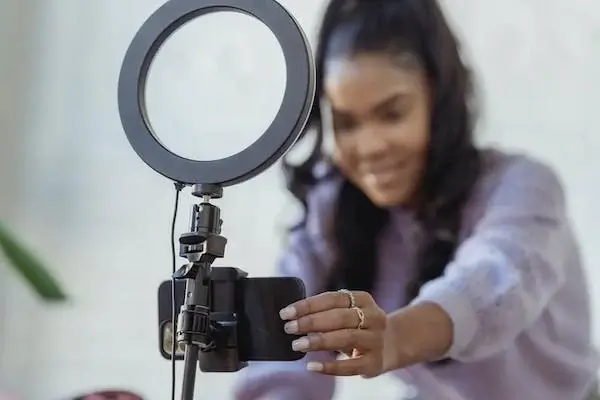Enhance Your Video Call Security and Privacy: A Comprehensive Guide on Using VPN for
Video Calls. Learn How VPNs Can Safeguard Your Conversations and Provide a Buffer-
Free Experience.
In the current digital landscape, video calls have become an integral part of communication,
both for personal and professional interactions. However, as the support for video calls
increases, so does the importance of ensuring privacy, security, and a seamless experience.
This is where using a VPN for video calls comes into play. In this VPN blade guide, we will
delve into the essential aspects of using VPNs to enhance your video calling experience.
What Is The Purpose Of Using A VPN For Video Calls?
Using a VPN for video calls and conferencing provides several important benefits:
● Privacy and security – VPN encryption protects the video call data and prevents
snooping or interception of your calls over the internet.
● Masks IP address – Your real IP and location are hidden from the video service
providers, enhancing privacy.
● Bypass geographic blocks – Can access blocked or censored video calling
platforms in certain countries by routing through another country's server location.
● Public Wi-Fi security – Prevents hacking or man-in-the-middle attacks when making
video calls over public hotspots by encrypting traffic.
● Hide identity on anonymous calls – Masks your identity if you want anonymity on
video call services that allow anonymous users.
● Evade bandwidth throttling – VPN tunneling can help bypass ISP bandwidth
throttling or deprioritization of video calling traffic.
● Connection stability – Switch between VPN server locations to optimize call
connectivity and performance for greater stability.
● Data privacy laws – Comply with stricter data privacy regulations when video call
servers are located in other legal jurisdictions.
For the best user experience, choose a VPN with servers optimized for HD video streaming
and real-time communications. This ensures smooth, high-quality video calls.
How Does A VPN Enhance Security During Video Calls?

Using a VPN for video calls provides multiple layers of security for your video calls:
● Encryption – VPNs encrypt all the video call data and packets traveling between you
and the other participants. This prevents man-in-the-middle attacks.
● IP masking – Your real IP address is hidden from the video service by the VPN. This
prevents tracking of your usage or location.
● Wi-Fi protection – Encrypted VPN tunnel secures video calls over public Wi-Fi
hotspots from hackers snooping on the network.
● WebRTC leak prevention – VPNs block leakage of IP addresses through WebRTC
protocols used in browser-based video call apps. Preserves anonymity.
● Firewall traversal – Allows inbound call connectivity by securely traversing company
or geographic firewalls that may block video services.
● Masked digital trail – No logs of who you called or when are exposed to your ISP or
the video service itself when using a no-logs VPN.
● Server-side security – Reputable VPN providers implement robust physical and
virtual security to protect servers used to relay your video calls.
● Secure connections – VPN tunnel uses the latest TLS/SSL protocols and ciphers for
authenticated and encrypted transport of video packets.
Using a trustworthy VPN with proven operational security ensures your confidential video
calls remain private without compromising on quality.
Can Using A VPN Improve The Quality Of My Video Calls?
Using a VPN for video calls can have varying effects on call quality. While a VPN can
enhance security by encrypting your connection and masking your IP, it might also introduce
slight latency due to the extra encryption process and the routing of data through VPN
servers.
This could potentially affect video and audio synchronization, causing a minor drop in quality.
Some users report encountering issues like having to solve the Omegle captcha every time
when using a VPN, as the service might perceive VPN usage as suspicious behavior.
It is recommended to choose a high-quality VPN provider with optimized servers to mitigate
these impacts and potentially experience improved call quality over unsecured connections.
Is It Legal To Use A VPN For Video Calls?
Yes, using a VPN for video calls is generally legal in most parts of the world. VPNs are
legitimate tools designed to improve online security and privacy. They allow users to encrypt
their internet connection and route their traffic through a secure server, protecting their data
from potential threats.
However, there are a few exceptions to consider. Some countries have restrictions on VPN
usage, particularly if the VPN is being used to engage in illegal actions or bypass
government censorship. Additionally, some video call platforms might have terms of service
that restrict or discourage VPN usage.
Before using a VPN for video calls, it's recommended to review the laws and regulations in
your country and the terms of service of the specific video call platform you're using to
ensure you are in compliance.
Can A VPN Prevent Eavesdropping On My Video
Conversations?

Yes, using a VPN for video calls provides a strong measure of protection against potential
eavesdropping on your private video conversations conducted online. Here's how it helps
prevent snooping:
● Full encryption of video stream – The VPN encrypts all packets containing video
and audio end-to-end. Any intercepted data is useless cipher text.
● Obscured endpoints – The VPN masks the real IP addresses of you and other call
participants, making it much harder to tap the streams.
● Secure tunnel traversal – Video data enters an impenetrable encrypted tunnel
between your device and the VPN server, preventing network sniffing.
● Wi-Fi hotspot security – Prevents easy snooping of video calls made over public
Wi-Fi networks by strangers or hackers.
● No leakage through WebRTC – VPNs block IP leaks via WebRTC that could expose
your real location during video calls made through browsers.
● Hide call patterns – VPN prevents your ISP or the video service from logging who
you call and when by anonymizing usage.
With suitable protocols and configurations, a VPN can provide robust defenses against call
interception attempts and data harvesting.
Are There Any Potential Latency Issues When Using A VPN For Video
Calls?
When using a VPN for video calls, potential latency issues can arise due to the additional
encryption and routing processes involved. The data packets traveling through the VPN
servers might experience slight delays, leading to a minor increase in latency.
This can result in a slight lag between video and audio during calls, impacting the real-time
communication experience. To mitigate these latency concerns, it's advisable to opt for a
reputable VPN service with optimized servers for video call use.
Additionally, selecting a server location closer to your physical location can help reduce
latency. While some latency might occur, the trade-off between enhanced security and a
minor delay is often deemed acceptable for most users engaged in secure video
communications.





